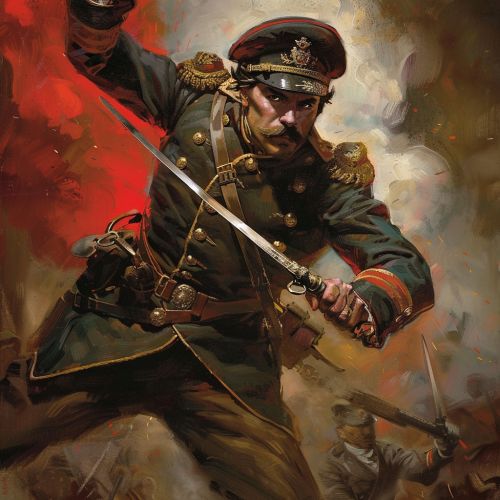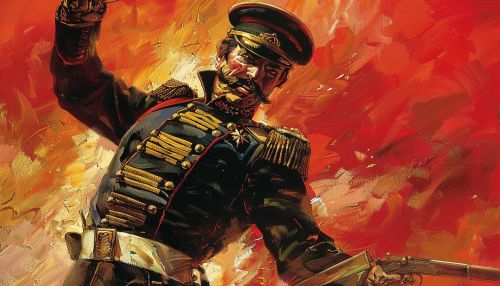George MacDonald Fraser
Early Life and Education
George MacDonald Fraser was born on April 2, 1925, in Carlisle, Cumberland, England. He was the son of a Scottish father and an English mother. Fraser's early education took place at Carlisle Grammar School, where he developed a keen interest in literature and history. His academic journey was interrupted by World War II, during which he enlisted in the Border Regiment of the British Army at the age of 18. Fraser served in Burma, India, and the Middle East, experiences that would later inform much of his writing.
Military Service
Fraser's military service was marked by his participation in the 14th Army, often referred to as the "Forgotten Army" due to its operations in the Southeast Asian Theatre. He saw combat in the Burma Campaign, where he was involved in several significant battles against the Japanese forces. His experiences in the army provided him with a wealth of material that he would later draw upon in his literary career. After the war, Fraser was demobilized and returned to civilian life, but his time in the military left an indelible mark on him.
Journalism Career
After the war, Fraser pursued a career in journalism. He started as a reporter for the Carlisle Journal, where he honed his writing skills and developed a reputation for his incisive reporting. Fraser later moved to the Glasgow Herald, where he worked as a feature writer and editor. His journalistic career spanned several decades, during which he covered a wide range of topics, from local news to international affairs. Fraser's background in journalism influenced his writing style, characterized by its clarity, precision, and attention to detail.
Literary Career
The Flashman Papers
Fraser is best known for his series of historical novels known as The Flashman Papers. The series chronicles the adventures of Harry Flashman, a fictional character originally created by Thomas Hughes in his novel Tom Brown's School Days. Fraser's Flashman is a cowardly, amoral, yet charming rogue who finds himself embroiled in many of the major military and political events of the 19th century. The series is noted for its meticulous historical research, vivid characterizations, and satirical tone. Fraser's portrayal of Flashman as an anti-hero was groundbreaking and has influenced numerous writers in the genre.


Other Works
In addition to the Flashman series, Fraser wrote several other novels, including Mr. American, The Pyrates, and Black Ajax. Each of these works showcases Fraser's versatility as a writer and his ability to blend historical accuracy with engaging storytelling. "Mr. American" tells the story of a mysterious American who arrives in England with a hidden past, while "The Pyrates" is a swashbuckling adventure that parodies the conventions of pirate fiction. "Black Ajax" explores the life of Tom Molineaux, a freed American slave who became a famous bare-knuckle boxer in Regency England.
Screenwriting
Fraser also had a successful career as a screenwriter. He adapted several of his own works for the screen, including the Flashman novels. Additionally, he wrote screenplays for major films such as The Three Musketeers and its sequel The Four Musketeers, both directed by Richard Lester. Fraser's screenwriting was characterized by its wit, historical accuracy, and ability to capture the essence of the source material.
Writing Style and Themes
Fraser's writing is distinguished by its blend of historical accuracy and imaginative storytelling. He had a keen eye for detail and a deep understanding of the historical periods he wrote about. His works often feature complex characters who navigate the moral ambiguities of their time. Fraser's use of satire and humor is another hallmark of his style, allowing him to critique societal norms and historical events without sacrificing the entertainment value of his stories.
Legacy and Influence
George MacDonald Fraser's contributions to literature and film have left a lasting legacy. His Flashman series has been praised for its innovative approach to historical fiction, and his other novels continue to be celebrated for their originality and depth. Fraser's influence can be seen in the works of contemporary writers who have drawn inspiration from his unique blend of history and fiction. His screenplays have also had a significant impact on the film industry, particularly in the genre of historical adventure films.
Personal Life
Fraser married Kathleen Hetherington in 1949, and the couple had three children. Despite his success as a writer, Fraser remained a private individual who valued his family life. He spent his later years in the Isle of Man, where he continued to write until his death on January 2, 2008. Fraser's personal experiences, particularly his military service and journalistic career, profoundly influenced his writing, providing him with a rich reservoir of material to draw upon.
